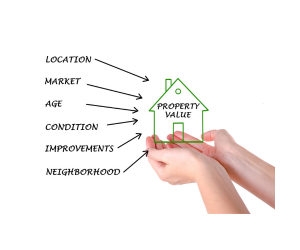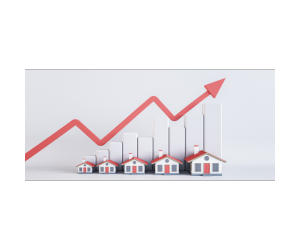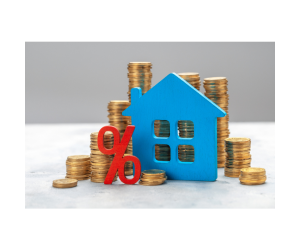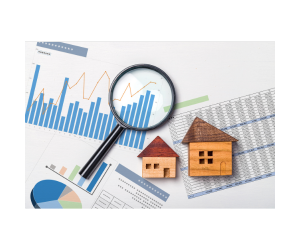Are you wondering what your house is worth? Whether you’re selling, refinancing or just want to know your net worth, knowing your house value is key. One way to estimate your house’s worth is by using a home value estimator tool, which provides a detailed report of your home’s estimated value, including factors such as property specifics, sales history, and nearby home values. In this post we’ll walk you through the process of finding out what your house is worth in simple terms.
Finding out what your house is worth involves several factors, location, size, condition and recent sales in your area. By considering these and using online tools and local real estate market data you can get a pretty good estimate of your property’s value.
We’ll walk you through the steps of a comparative market analysis (CMA), an analysis used by real estate agents. We’ll also look at other methods, online valuation tools and hiring a professional appraiser to help you get an accurate value of your house.
Knowing your house value is not only for financial planning but also for making decisions about your property. So let’s get started with this simple guide.
What Affects Your House Value

When finding out your house value several key factors come into play. Location is a big one that affects property values, neighborhood desirability, proximity to amenities and quality of schools in the area all play a part. Size and layout of your home also contributes to its value, bigger homes with functional floor plans generally cost more. All these factors significantly influence your home value.
The condition of your property is another big factor in determining its value. Well maintained homes with updated features and modern amenities generally have a higher market value than homes that need repair or renovation. Recent sales of similar homes in your area, called “comps” help appraisers and real estate agents determine the value of your home based on current market conditions and demand. Comparable properties provide a benchmark for estimating your home’s value by considering recent sales of similar properties in the neighborhood.
Other factors that can impact your home’s value are the age of the property, its style and the overall state of the housing market. By considering these factors with local market data you can get a better idea of what your home is worth and make informed decisions about your property and potential sale.
How to Estimate Your House Value Using a Home Value Estimator Tool

There are several ways for homeowners to estimate their property value, each with varying degrees of accuracy and complexity. One way is to do a Comparative Market Analysis (CMA) which is comparing your home to similar homes that have recently sold in your area. By looking at the sale prices of similar homes you can get an estimate of your property’s value.
Another way is to use an online tool which gives you an instant estimate of your home’s value based on algorithms that consider location, size and recent sales data. While online tools are a quick and easy way to get an idea of your home’s value, they may not always be the most accurate as the data they use is limited. However, these online valuation tools can serve as a useful starting point for estimating a property’s value.
For a more accurate valuation homeowners can hire a professional appraiser to do a full assessment of their property. Appraisers are trained to look at different aspects of a home, its condition, features and location to determine its fair market value. This will cost a fee but can give you a full and reliable estimate of your home’s value that you can use for refinancing or selling your property.
Real Estate Agents

Real estate agents play a big role in helping homeowners determine their property value by using their knowledge of the local market and expertise in property valuation. Agents have access to current sales data and market trends so they can give you accurate and insightful assessment of your home’s value. By working with a real estate agent you can benefit from their experience in pricing properties correctly and getting the most out of your home.
Besides pricing, real estate agents can also give you valuable advice on how to make your property more appealing to buyers, staging advice, marketing strategies and negotiation tactics. Agents know what affects home values in your neighborhood and can help you position your property in the market. By working with a knowledgeable real estate agent you can navigate the property valuation process with confidence and get the best results in your real estate transactions.
The Appraisal Process

Getting a professional appraisal is a formal process of hiring a licensed appraiser to evaluate your property and determine its fair market value. Mortgage lenders often require a home appraisal before approving a loan. An appraiser will do a full inspection of your home, looking at its condition, features and overall quality to get an objective value. The appraiser will also consider the property’s location, recent sales data and market trends to give you a full assessment of its value.
After the inspection the appraiser will prepare a detailed appraisal report that outlines their findings and justify the subject property’s value based on appraisal standards. This report is an official document that can be used for mortgage, refinancing or selling the property. Professional appraisals give homeowners a reliable and unbiased value of their home that lenders and buyers will take seriously in real estate transactions.
While appraisals cost a fee, the investment will give you valuable insight to your property’s value and help you make informed decisions about its management and sale. By hiring a qualified appraiser you can get a deeper understanding of your home’s value and use that to your advantage in real estate transactions.
Factors that can increase or decrease your home’s value based on Local Market Conditions

Several factors can affect your home’s value either positively or negatively based on its desirability and marketability. Upgrades and renovations that improve the functionality, aesthetics and energy efficiency of your home can increase its value big time. Features like modern kitchens, updated bathrooms and energy efficient appliances are attractive to buyers and can make your home more marketable.
On the other hand, neglecting maintenance and letting your property deteriorate can decrease its value and make it less attractive to buyers. Issues like outdated fixtures, structural problems and poor curb appeal can subtract from your home’s value and may need investment to fix. Besides, factors like lack of curb appeal, noisy neighbors or proximity to undesirable facilities can negatively impact your home’s value.
External economic factors like interest rate fluctuations, changes in employment and market demand can also affect your home’s value. Understanding these external factors and how they affect the local real estate market will help you anticipate changes in your property’s value and make informed decisions about your real estate investment. By being proactive and addressing both positive and negative factors that affect your home’s value you can maximize its potential and position it in the market.
Monitoring Your Home’s Value Over Time

As a homeowner you need to keep track of your property’s value over time to monitor its performance as an investment and make informed decisions about its management. By keeping records of your home’s value at different points in time you can see its appreciation or depreciation and understand what’s behind those changes. Updating your property’s value regularly will keep you informed of market trends and adjust your strategy accordingly.
One way to track your home’s value is to do periodic Comparative Market Analyses (CMAs) to compare your property to recent sales in your area and see its current value. Online valuation tools can also give you updated estimate of your home’s value based on the latest market data. Keeping a record of any improvements or renovations you’ve done to your property will help you see how those have affected its value over time.
By being proactive and informed of your home’s value you can make strategic decisions about refinancing, selling or leveraging your equity based on current market conditions. Tracking your property’s value will allow you to adapt to changes in the real estate market and take advantage of opportunities to maximize your investment.
How Interest Rate Hike Affects Your Home’s Value

Knowing your home’s value is part of selling it but this gets a bit complicated when external factors come into play – like interest rate changes. When the Fed raises interest rates, the cost for buyers to borrow money for a mortgage goes up. This will affect how much they can or will offer for your property regardless of the current market value based on recent sales in your area. The higher rates will mean fewer buyers will qualify for loans, shrinking the pool of buyers for you to choose from.
And higher borrowing costs may bring more cash buyers into the market hoping to buy at lower prices. So the offers you get may be lower than what you expected as buyers adjust their budgets to factor in those extra costs. Knowing this will help you set your expectations and navigate the complexity of determining your home’s value in a changing market.
How to Use Your Home’s Value

Having your home’s value gives you an asset that you can use to support your financial goals and aspirations. For homeowners looking to refinance, knowing your home’s value will help you determine how much equity you have to tap and get better loan terms. By using your property as collateral you can get lower interest rates and potentially lower overall borrowing costs.
If you’re selling your home, knowing its value will help you set a competitive listing price that attracts buyers and maximize your return on investment. Pricing your property accurately based on its market value will help you sell fast and avoid overpricing or underpricing. And having a clear idea of your home’s value will help you negotiate with buyers and get a better sale price.
Beyond financial transactions your home’s value can also inform your long term financial planning and wealth building strategies. Knowing the equity in your property will help you make decisions on investments, retirement planning and estate planning. By using your home’s value effectively you can create opportunities to grow your wealth, secure your financial future and achieve your long term financial goals.
Conclusion: Why Knowing Your Home’s Value is Important for Homeowners

In conclusion knowing your home’s value is a big part of homeownership that has far reaching implications for your financial life and future planning. By determining your property’s value through CMAs, online valuation tools and professional appraisals you can get valuable information about your biggest asset. Knowing your home’s value will empower you to make informed decisions on selling, refinancing or using your equity for other investments.
Location, size, condition, recent sales data and external factors all impact your home’s value and should be considered along with local market trends. By being proactive and monitoring your property’s value over time you can adjust to changes in the market, maximize your investment and achieve your financial goals. Using your home’s value to your advantage will support your financial planning, wealth building strategies and long term goals and give you a foundation for financial stability and security.
Knowing your home’s value is not just about the numbers; it’s about being a homeowner and making informed decisions that align with your goals and secure your financial life. By taking the time to get your house’s value through a thorough analysis and expert advice you can unlock your biggest asset and set yourself up for a good life.
If you’re interested in selling or buying real estate in New York City, simply click the button below to schedule a call or email me at [email protected].



